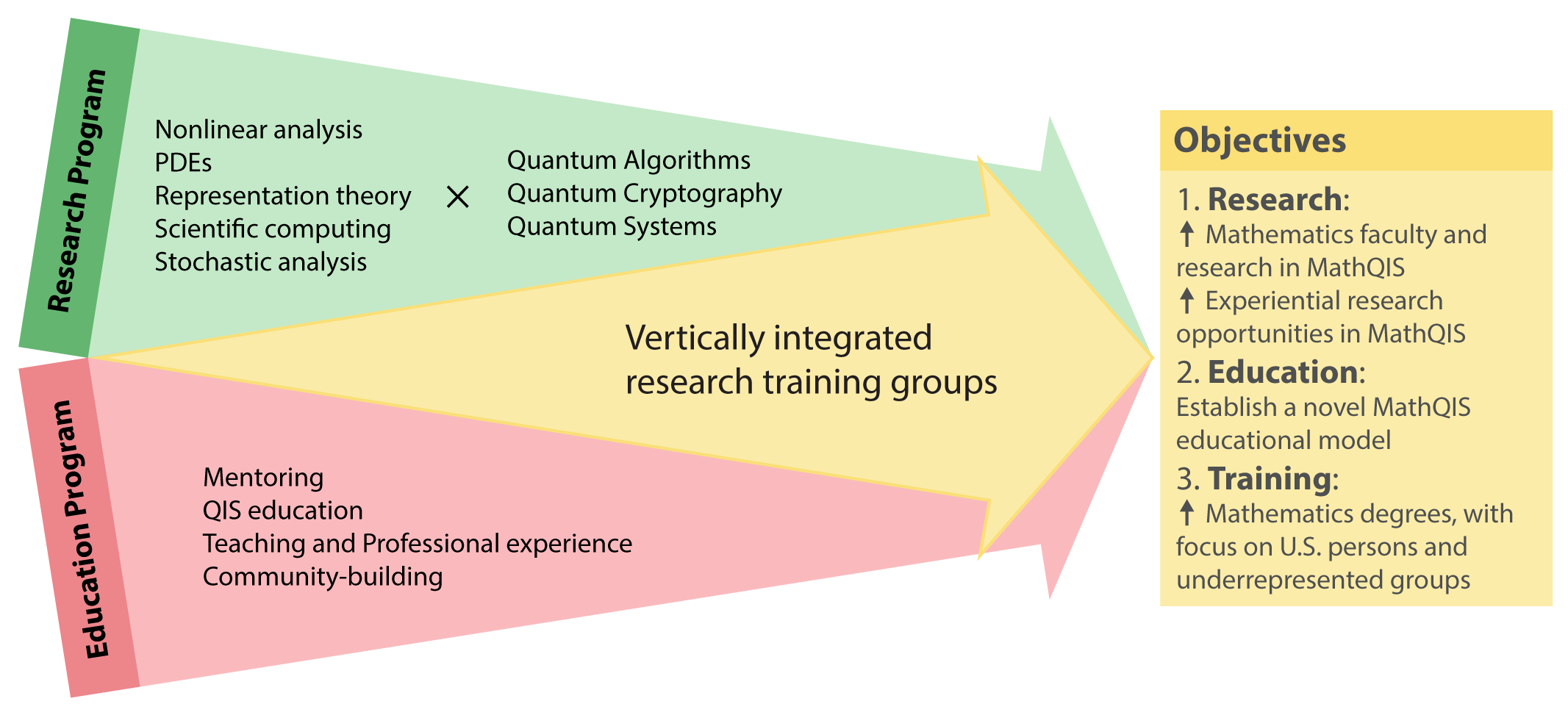Vision of MathQuantum

MathQuantum is a Research Training Group (RTG) focused on enabling Mathematicians to enter the world of Quantum Information Science (QIS). We are housed at IPST and funded by NSF. With MathQuantum, we are building an educational program (red arrow, Figure) that will blend with collaborative research (green arrow, Figure), such that education and research enhance each other in a vertically integrated training group. The research draws from a set of Mathematical areas where our faculty have expertise, and advance these by tackling QIS challenges under three themes. The training includes an innovative set of activities and prioritizes interaction between undergraduate students, graduate students, postdocs, and faculty.
Our program is led by PI Konstantina Trivisa, and Co-PIs Maria Cameron, Andrew Childs, Daniel Serrano, and Lawrence Washington. Senior Personnel Howard Elman, Dionysios Margetis, Carl Miller, Ricardo Nochetto, Jonathan Rosenberg, Eitan Tadmor and Pratyush Tiwary, Gorjan Alagic, Thomas Haines, Alicia Kollár, and Deep Ray serve as research mentors. Senior Personnel Anil Zenginoglu coordinates community events, internships, and program technologies. Senior Personnel Gili Marbach-Ad leads program evaluation and assessment.
Research
QIS uses quantum mechanical systems to perform information processing tasks, and studies physical systems from an information-theoretic standpoint. Quantum technology is theoretically capable of performing certain tasks that are infeasible using classical (non-quantum) technology. Recently, there has been a rapid acceleration of the field, including steady progress towards scalable quantum computers and large investments from the public and private sector. Our research program employs a set of Mathematical tools to advance QIS within three specific areas: Algorithms, Cryptography, and Dynamics/Systems. Learn more.
Training
MathQuantum training aims to provide undergrads, grad students, and postdocs the knowledge and skills needed to apply Mathematics toward QIS research problems. Our training program aims to provide depth and breadth in foundational Math and QIS knowledge plus hands-on skills. In addition, our training extends beyond traditional educational experiences by through robust mentoring support, community building, professional development experiences, exposure to societal impacts of QIS, and proposal development training. Learn more.